Houseplants - beautiful decorative element interior In addition, it’s no secret that plants also purify the air. True, there is an opinion among the people that some indoor flowers can't be kept at home, they say, bad omens, bad energy etc. You can believe this, but you can only smile contemptuously in response to such statements. But there is a more rational answer to the question “what flowers should not be kept at home”?
What flowers should you not keep at home and why?
Often giving a girl a compliment, a man compares her to a flower. After all, flowers are considered to be a symbol of beauty and grace. But few people think that a flower can be poisonous and deadly... It turns out that some houseplants Not only will they not bring any benefit to the owners, but they will even do harm. And this is quite scientific facts, and not folk speculation and blood-chilling mind-blowing legends.
So, many are probably familiar with this: a bouquet of beautiful lilies can become not a nice gift, but a real burden. After all, their rich, juicy aroma causes headaches, migraines, and even allergies in many people. But these are individual moments: here a person can independently determine by his condition whether lilies are suitable for him or not.
Be careful: photos of flowers that should not be kept at home
But some indoor flowers are included in the official list poisonous plants. There are only 50 house flowers on this list. But many of them are so familiar to us that it is difficult to imagine any room without them. So, beware - what flowers should you absolutely not keep at home?
Azalea. Its leaves contain andromedotoxin and glycoside.
Aglaonema is a potential allergen. Its juice can cause irritation to the mucous membranes and skin.
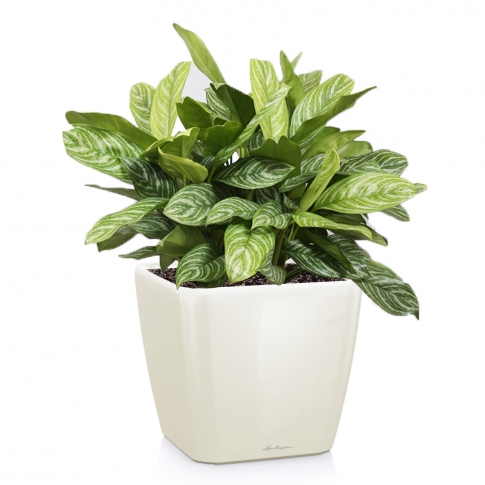
Alocasia (popularly known as elephant ears).
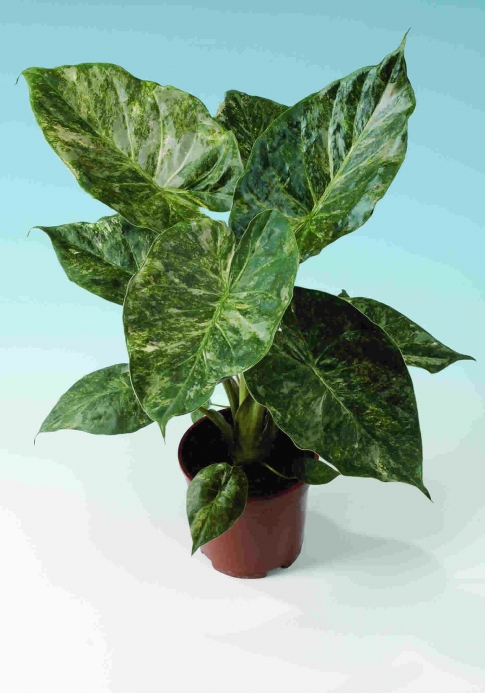
Anthurium (light).
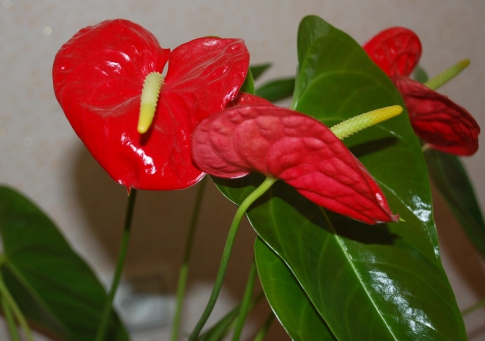
Dieffenbachia. God forbid it gets into the mouth (although, of course, it is unknown how and why) - swelling of the tissues. And so, in principle, it is a potential allergen, which is also unpleasant and quite dangerous.
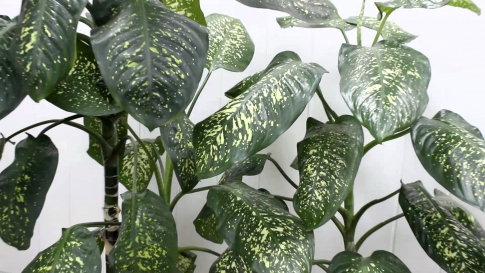
Clivia contains a substance called lycorine. And in large doses it can cause paralysis. So if there is a need to poison someone, there is no need to look for prohibited chemicals - a person can be “killed” with a beautiful flower.
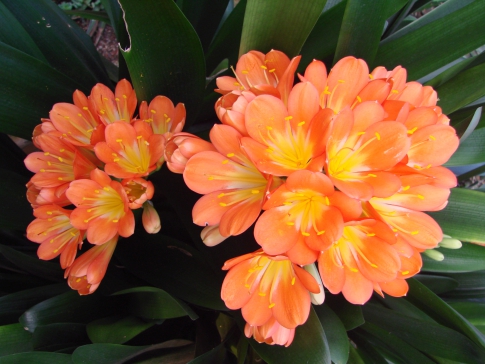
Croton. It is classified as an allergen, and its milky juice also contains poison.
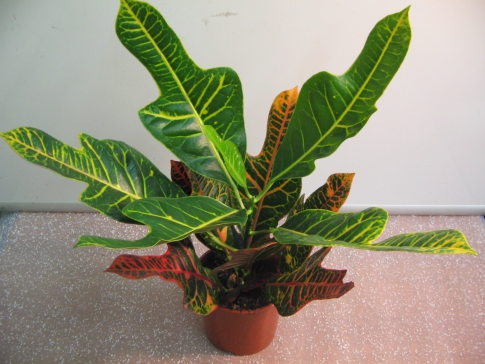
Monstera is not named so for nothing. Scientists never waste words. Monstera juice contains a very strong poison.
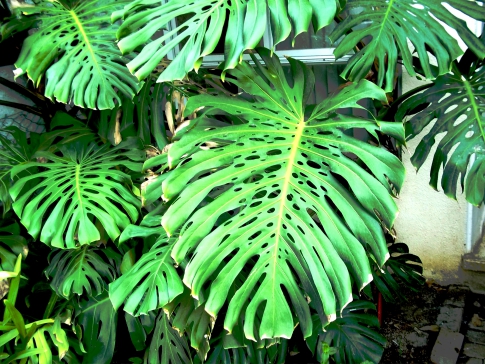
Oleander also has a “telling name” because it contains poison - oleandrin. In everyday life - it can simply cause allergies, and a large number of The poison in the juice of this plant is a dangerous weapon.
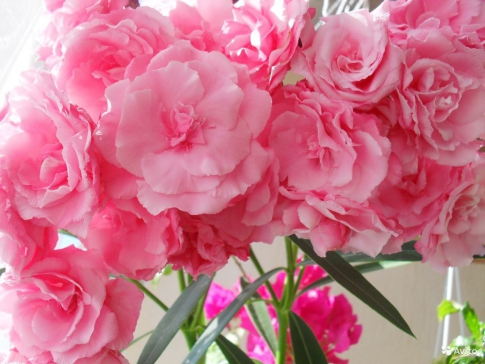
Poinsettia (Christmas star) has a milky sap that is also poisonous.
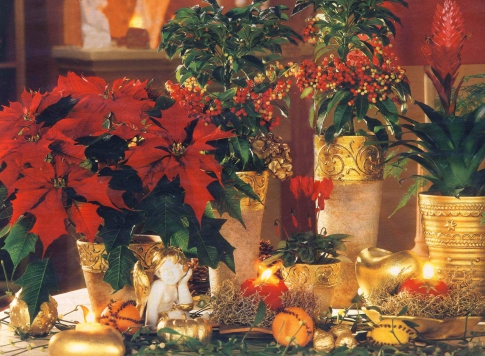
Strong allergens also include ficus, ferns, pelargonium, rhododendron, and cyclamen.
How can the poison in the juice of a houseplant harm you?
Yes, a sane person will neither drink it, nor eat it, nor even just touch it with his hands. But children and animals do not have such common sense, so anything can happen. And it is quite difficult to protect them from these dangerous flowers: wherever a playful kitten or a restless child gets into. So, out of harm’s way: it’s better not to take unnecessary risks...
In addition, you yourself need to wear gloves when caring for these flowers. During the process of pruning and replanting them, do not touch your eyes and be sure to wash your hands thoroughly after all work. After all, even any contact of juice on the body can lead to bad consequences.
Enveloped in mystical vibes...
And let's move on to the most interesting - mystical legends and folk superstitions. What flowers should not be kept at home - signs. It is unknown where this came from and why, but suddenly it comes true?..
One of the most common signs: if you keep climbing flowers in the house, then their owner or her daughter (if the owner is already married) will not marry. Variations on the theme: throw away the ivy, or your husband will leave you.
Also, for example, a cactus promises that the husband will become drunk. But at the same time, they are considered protectors of the house - they scare away burglars.
Calla lilies, according to legend, bring sadness to the house. These flowers, refined and very refined, are considered “funeral” in many countries. So perhaps there really is something to this. Although all symbolism is also conditional, and different nations may diametrically contradict each other.
Violets are considered “world” flowers - they can resolve and smooth out conflicts.
And if indoor flowers do not bloom, then this means poverty in the house, etc.
Believe it or not...
In general, there are quite a lot of such signs, and they can even be very strange. But there is also a rational grain in this. Indeed, according to a number of spiritual practices (again, you may not believe it, but everyone has a soul, energy and energy), flowers carry strong energy. And the same esotericism reasonably explains the folk superstition about ivy, other climbing flowers and vines. They have masculine energy, so their presence in the house suppresses a man, metaphorically speaking, displaces him with its strength.
Take it for yourself and tell your friends!
Read also on our website:
show more
The benefits of indoor plants are great - they decorate the interior, purify the air and can even influence a person and his health. In connection with the last property of flowers, the question may arise as to which indoor plants should not be kept at home, because the impact can be not only positive.
What plants should not be kept at home and why?
Not so long ago you could see it next to almost every computer. It was believed that this indoor plant purifies the air from monitor radiation and protects the user. However, after the craze for the science of feng shui, cacti were practically expelled from housing - ancient Chinese teaching recommends beingware of plants with thorns, because they are a source of aggressive energy.
Meanwhile, esoteric specialists partially rehabilitate cacti and do not recommend keeping them at home only for very gentle or unsociable people, because This proximity will cause them anxiety and nervousness. Strong personalities will not experience any harm from the cactus; on the contrary, the plant will serve as an energy shield for them and will help them concentrate only on important matters.
Plants that really should not be kept at home, especially if children and four-legged pets live there, definitely include poisonous specimens.
Florists do not recommend keeping gloriosa, dieffenbachia, adenium and clivia at home, which, if eaten, can cause serious poisoning in a child or pet, accompanied by failure of internal organs. Azalea, amaryllis, philodendron, datura, and spurge are also poisonous. A completely ordinary ficus is also dangerous for people - its juice causes allergies and burns.
Oleander can cause health problems - the smell of its flowers causes headaches and dizziness, and the juice can cause blindness. The smell of geranium can cause migraines and allergies.
Which plants should you not keep at home according to signs?
To believe or not to believe in omens is up to each person, but many superstitions also apply to indoor plants. A large group of indoor plants are classified as “husbands”. Few women will be pleased if her husband leaves her, and if the flower is “guilty” of this, it is doubly offensive. That is why many ladies do not allow fragrant calissia, tradescantia, epipremnum, zebrina, reo, campelia to appear at home.
Since ancient times, some plants have had a reputation as energy vampires; their signs are also prohibited. Ferns and philodendrons (monstera) have a bad reputation.
Why can't you keep climbing plants at home?
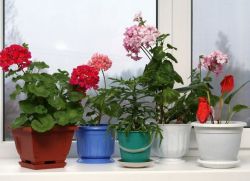
Many people do not believe bad rumors about plants and are happy to grow both “husbands” and vampires, and neither the families nor the health of the owners of these flowers suffer. Most likely, these people are simply not inclined to look for the causes of their problems in the field of esotericism.
If you really want to buy a flower with a bad color for your home, you shouldn’t make a decision right away. You need to “get to know” the plant, be close to it. If the energy emanating from a flower is pleasant, you can bring it into the house without a doubt, but if the presence of the plant causes discomfort, you should not place it in your apartment.
23 May 2013, 14:14Indoor flowers are one of the most important elements home interior. They help create coziness in your home and give your room personality. However, everyone knows that not all flowers can be grown at home! Some flowers are poisonous, others can cause an unpleasant reaction in people with allergies or people suffering from certain diseases, others are not recommended to be kept in an apartment according to Feng Shui or folk signs... Let's figure it out: what flowers should not be kept at home?
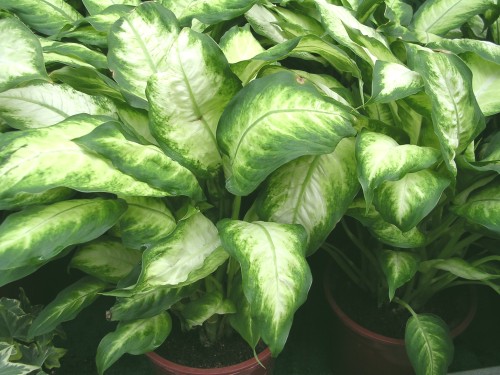
Dieffenbachia. An indoor tree with large yellow-green leaves is very beautiful, but dangerous! Its juice is poisonous and can cause serious poisoning in a child who decides to taste the leaf. You yourself can also get burned by the juice of this plant if you cut shoots or leaves from it.
This happened to me once, my friend didn’t wash the knife well, after trimming this plant, I then cut off my sausage with this knife when I was eating, it felt like I was eating broken glass, then I was treated for another week. So whether it’s worth having such a plant at home, decide for yourself.
Philodendron. The leaves of this plant contain toxic acids. If a child eats a leaf of this plant, he can also be seriously poisoned.
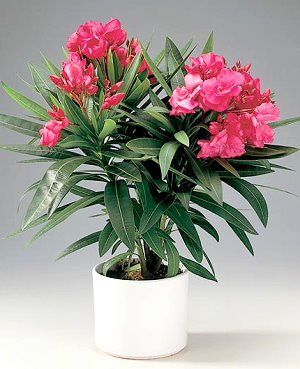
Oleander. The juice of this plant can cause blindness, and the aroma of the flowers can cause dizziness.
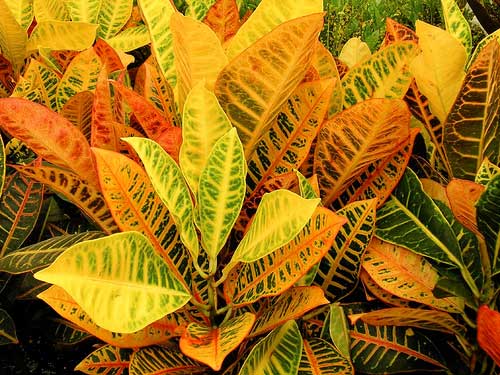
Croton, as well as other euphorbias. Poisonous, burning juice. Causes burns upon contact with skin and death upon contact with blood.
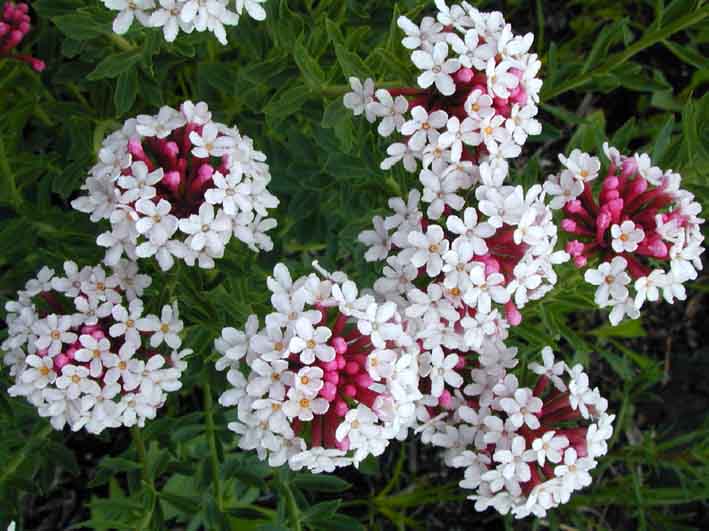
Stellera dwarf, Rhodoea japonica. The sap from these plants is also dangerous. If a child accidentally swallows a piece of this plant, the burning juice will cause swelling vocal cords, in the worst case, it can lead to numbness.
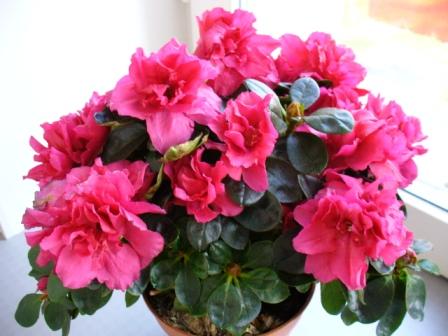
Azalea (Sims' rhododendron). If you eat a leaf of this beautiful, but dangerous plant, intestinal colic and cramps will begin.
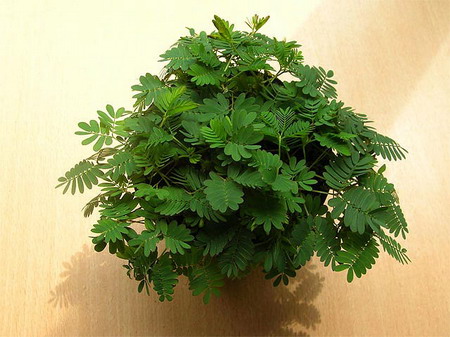
Tulip Gesner, mimosa bashful. In people who for a long time are in close contact with these plants, hair begins to fall out, up to complete baldness.
Invisible enemies.
It often happens that for no particular reason we begin to suffer from insomnia, dizziness, headaches... Or an allergy suddenly arises, and we find ourselves completely at a loss: to what? In this case, you should take a closer look at the plants that are in your room. Perhaps it's all about them...
Lilies. At night, they absorb oxygen and release carbon dioxide, which can lead to morning headaches for no apparent reason. Besides strong aroma lilies can cause insomnia. It is strictly not recommended to keep these flowers in the bedroom.
Ferns. Just like lilies, they convert oxygen into carbon dioxide at night, which can cause headaches in the morning.
Orchids. Their strong smell stimulates nervous system and can also lead to insomnia.
Hydrangea. Particles emitted by this plant can cause allergic reactions on the skin.
Tuberose. Also emits particles that stimulate the sense of smell. People suffering from hypertension and other heart diseases long time inhaling its aroma, they feel discomfort, dizziness and depression may occur.
"Black cats" and other feng shui.
Also on the Internet you can hear a lot of recommendations from bioenergeticists and Feng Shui specialists about which plants are energy vampires and which, on the contrary, feed energy, about which plants are best to grow in which area of the house...
There is one piece of advice on this topic. If you practice Feng Shui, study it seriously and understand this teaching in detail, and do not listen to the advice of “experts” of unknown qualifications on the Internet.
So I won’t tell you anything about zones and energy, but in the end I’ll just name a few well-known folk beliefs regarding indoor plants that have nothing to do with Feng Shui.
Climbing plants like ivy It is not recommended to keep it at home, because, according to popular belief, then men will not linger in this house, and the owner will not see a happy and long life in marriage.
cacti. There are several beliefs regarding them:
If you keep cacti at home, your husband will become a drunkard.
If you keep cacti in a girl's bedroom, the girl will not get married successfully, and in general will be deprived of admirers.
Cacti neutralize the harm caused by a computer monitor... However, this is more likely not even a belief, but a scientific myth that had nothing to do with the truth even when computer monitors actually emitted harmful radiation. Now, in the vast majority of cases, liquid crystal monitors are used, which are completely safe for health.
Palm. Regarding this beautiful, large and unusual plant popular belief there is only one. If a palm tree was given to you, then you cannot bring it into your home - this, according to legend, will cause great grief. About what should be done with a donated palm tree in order to great grief there was no, belief is silent. But I suppose that if you don’t bring a palm tree into your house, but roll it on a scooter, then this will be quite enough.)) At the very least, positive emotions and invaluable life experience gained in the process of “rolling” a palm tree into your house will help you in the future, treat any grief in your life more philosophically.
There is also a certain group of house plants, in the stems and leaves of which poisonous juice flows. If only adults live at home, then there is nothing to fear and such plants can be safely grown. But, if there are small children or animals at home, then it is better to give the plant to a family where there are no risk groups.
Flowers that take away the energy of love and happiness
On the list of which flowers should not be kept at home: photos and signs from photos, any climbing plants are always first. Yes, they look impressive indoors and are capable of creating a real home even from a small room in a city apartment. winter Garden. But you should be extremely careful with such indoor flowers.
Short list climbing plants that are not suitable for home:
Golden mustache;
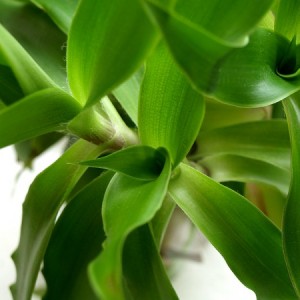
Tradescantia;
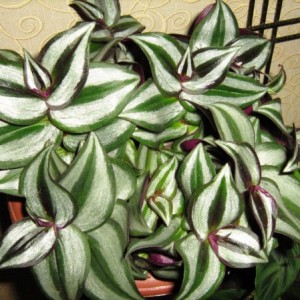
Raphidophora;
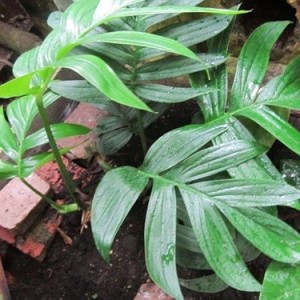
Epipremnum;
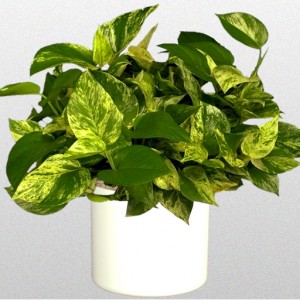
Campelia;
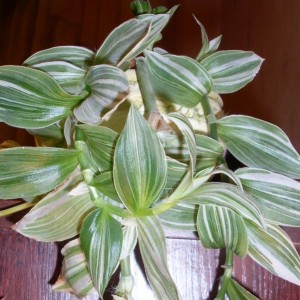
People say that keeping any of this flower at home can lead to your husband being taken away from the family. These are lovebird flowers that take away the energy of love and actively absorb the energy of happiness, without giving anything in return.
Interesting! Even the eastern philosophy of Feng Shui is also wary of any climbing flowers. According to Feng Shui, keeping such flowers in a residential area is strictly not recommended.
Plants that contain poison
If the previous group of flowers is considered dangerous for some intangible reason: the plants absorb positive energy, then this group of domestic flowers has clear negative manifestations. In particular, flowers are considered poisonous, unless, of course, you taste them. Here we need to highlight a fairly popular Dieffenbachia . It is distinguished by its spectacular appearance and beautiful large leaves, but if the leaves are broken, you can see the juice, which is poisonous. So, if there are children, cats, dogs and other animals at home, then it is better to give up growing this flower for a while.
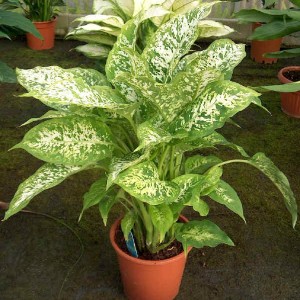
Too much aromatic plants
Other plants, for example, lily or geranium , have a strong odor. It can have a negative impact on a person's well-being. In particular, the smell of lilies is so strong that it irritates the nervous system and makes it impossible to relax in the room. Moreover, lilies actively breathe oxygen along with us, releasing carbon dioxide.
As for the smell of geranium, it often causes headaches. Many people have various allergic reactions to geranium. They talk about a strong aroma, it is also worth mentioning such a flower as oleander . It also has a pungent odor that can cause dizziness. Oleander juice is dangerous to such an extent that cases have been recorded where it caused blindness. Now you have even more information about which flowers you should not keep at home: photos and signs.
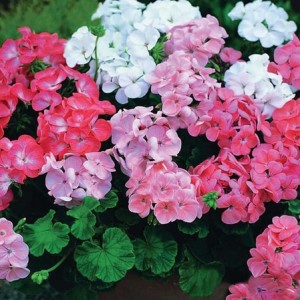
What about orchids?
Needless to say, orchids are the most popular house flowers today. They bloom beautifully and are extremely easy to care for. But do orchids belong to the list of which flowers should not be kept at home: photos and signs? Here we can say with confidence that no. Neither among the people nor in science are there any legends or evidence that orchids have a negative effect on space or on the person himself.
Like any flowering houseplants, orchids are not recommended to be kept in the bedroom. But in any other room of a residential or office space they can safely occupy the most beautiful places.
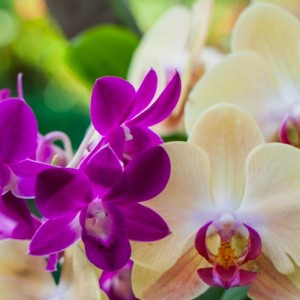
Fortunately, the list of which flowers should not be kept at home: photos and signs is small. Moreover, many folk signs They have no scientific basis at all. And, if you are not married and are not afraid that your husband will leave for another woman, then any climbing plants can be safely grown. But for the group poisonous flowers With a pungent odor, special attention should be paid. Especially if you are prone to allergies or have children or pets at home.
Most likely, you know that growing climbing flowers and vines in some way prevents you from living with a man under the same roof. Such plants include: ivy, tradescantia, epipremnum, golden mustache, however, here too there are nuances and interesting points. Let's try to figure it out what flowers should not be kept at home and why.
What plants should not be kept at home and why?
Based on the rules and technologies of the teachings of Feng Shui, vines, ivy, and other vines can protect a home. Reflect negative energy, drive away negativity in the form of poisonous sha-qi arrows, which are always directed in one direction and emitted by objects in the apartment. The capabilities of curly helpers also include compensation for unwanted energy in the form of a “curtain” of your home.
Although from the point of view of science, loaches help purify the air. Apparently you shouldn’t be so categorical about climbing plants. Although now you know Why can't you keep climbing plants at home?.
It is not known where the distrust of Tradescantia came from, a beautiful and quite common plant that supposedly “drives away” the male sex, but it also symbolizes prosperity and well-being.
The flower has incredibly sensitive energy, it is susceptible to any changes in the house, such a green indicator that allows you to identify the presence of problems in the apartment or the unsatisfactory state, both emotional and physical, of family members. If a flower exhibits such energy, it withers, withers, dries up, and loses its leaves. vitality. If everything is fine in the house, you will be provided with a charge of positive energy.
Which pets should not be at home based on the teachings of Feng Shui?
According to the principles of ancient science, cacti are prohibited from being in the house. Many people believe that it is not safe to have poisonous flowers in the house; without having a Feng Shui consultant among your friends, it is impossible to get a clear answer.
Is the presence of cacti in a living space necessary or harmful? There is no categorical ban on Feng Shui, but some caution should be taken not to place “thorns” and their relatives near bedrooms, lounges and children's rooms. They talk about their predisposition (thanks to the thorns) to contribute to scandals and squabbles, the ability to make a person aggressive and hot-tempered. But in relation to the office, kitchen, corridor - there are no such prohibitions, you can freely place prickly friends to repel negative energy.
Today, scientists have confidently stated that the cactus has nothing to do with the absorption of negative electromagnetic radiation (and not so long ago, every computer monitor certainly had a pot with a helper flower, and we sincerely believed that we were absolutely protected from any impact on the body ) that come from a television or computer screen. The presence of a cactus located in the office can help improve performance and brain activity, thereby extending the working day and increasing productivity.
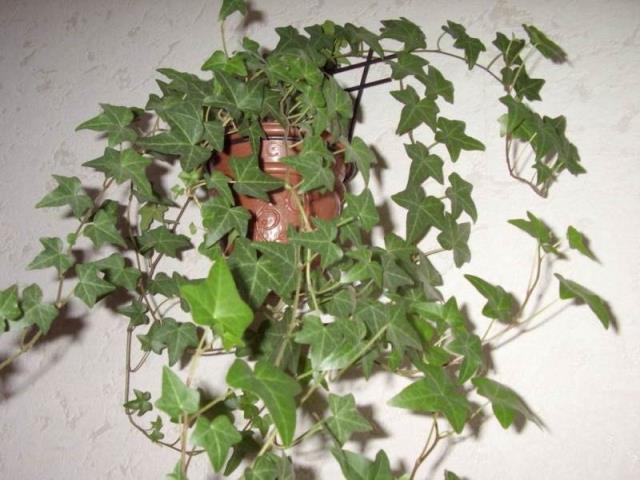
However, if you are already married, are not superstitious, or do not want to get married in principle, definitely place cacti around the perimeter of the windowsill, because the same spines help reflect hostile energy.
